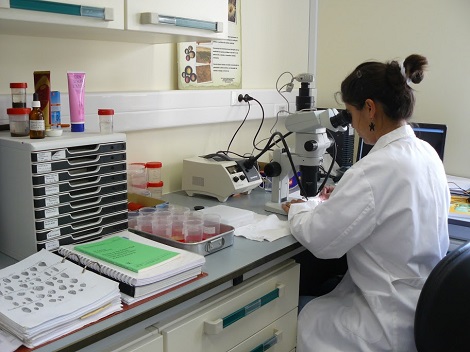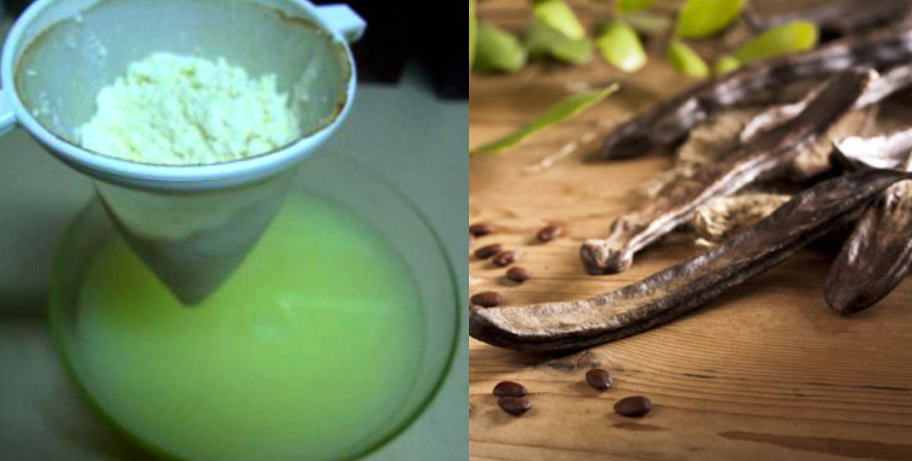 Whey can be of great help to carob, more precisely to the production surpluses of the processing industry of this multifaceted fruit, in the creation of a biofuel whose production is competitive and compensates those who invest in it.
Whey can be of great help to carob, more precisely to the production surpluses of the processing industry of this multifaceted fruit, in the creation of a biofuel whose production is competitive and compensates those who invest in it.
The «Soro & Alfaetanol» project, which is being developed at the Environmental Engineering and Biotechnology Laboratoryl from the Center for Marine and Environmental Research (CIMA) of the University of Algarve, was presented in November and takes a step further, in relation to its older brother, the «Alfaetílica» project.
Both projects are coordinated by Emília Costa, who spoke with the Sul Informação and explained that the industrial by-product that was chosen for this new line of research causes some headaches for the dairy industry.
The fact that whey, which results from the production of cheese, is a residue that requires treatment before being discarded, as it is a polluting agent, led the CIMA team to look carefully at this product as a form of to increase the raw material available for the production of biofuel.
«After the case study that was done with whey, which is a very polluting effluent, we want to arrive at the way of producing bioethanol, from whey and carob, with high efficiency and a very high yield», revealed the Algarve researcher.
The use of whey for the production of bioethanol is not unprecedented, as it has already been done in other countries, although “always with a low yield, since whey has a low sugar content”. "What we are looking for is to use other residues that can be added to the whey and enrich the amount of sugar to be transformed into ethyl alcohol, which is what we are talking about", said Emília Costa.
With regard to the cost of production, a determining factor for this knowledge to be transferred to the industry and put into practice, the scenario depends on the cost of raw materials, but the tests carried out are promising. "We dimensioned for different volumes and the production price ranges from 60 to 90 cents per liter, depending on the quantities we are talking about", he said.
« And we can also introduce in the commercial part some production by-products, such as yeast extract and fiber that is extracted from carob, which can be used to produce heat. In other words, this project, if there are any interested in investing, can be worked on and optimized to place the cost of ethanol below 60 cents», emphasized Emília Costa.
And we can also introduce in the commercial part some production by-products, such as yeast extract and fiber that is extracted from carob, which can be used to produce heat. In other words, this project, if there are any interested in investing, can be worked on and optimized to place the cost of ethanol below 60 cents», emphasized Emília Costa.
The CIMA team has already managed to produce 2nd generation bioethanol using only carob pulp, very rich in sugar, for a long time. But, taking into account the limitations on the amount of raw material (the Algarve carob pulp is not sufficiently abundant and is very different, for example, from Morocco, which would not give the same yield), as well as the growing number of uses that are being found for the locust bean pulp, which increase the value of this product, those responsible for «Alphaethyl» sought to follow alternative lines of research.
“The question that arises here is, in fact, the amount of locust bean pulp available. Therefore, we have been investigating the possibility of using other fruits, namely citrus fruits, which have a lot of sugar. And what we need is a high sugar content», explained Emília Costa.
Carob has, from the outset, "a very high sugar content", which is why it was the first bet. “But I think we can think about dimensioning a project that can bring together different agro-industrial residues. These wastes are usually either wasted or sold at a very low price,” he added.
The need to go further was, moreover, highlighted by an industrialist in the field of carob processing in the presentation of 'Soro & Alfaetanol', who considered that using only that fruit might not be interesting. With the entry of whey into the equation, more raw material is gained and an interesting solution is found for industry and the environment.
For now, revealed Emília Costa, «Soro & Alfaetanol» has not yet arrived at a formula that can be, from the outset, used in the industry. “There is an engineering project in progress. But, obviously, if there is an interested investor, we will need to carry out a scale-up study, to ensure that the values are maintained, and then a project adapted to the raw material in question», he said.
“At the time of Alfaetílica, there were businessmen who showed interest, but they didn't materialize. But, with the version that combines carob with whey and other agri-food residues, it could be different», he believes. He even admits that there may be collaboration with associations of producers, «namely of fruits, as there are many in the Algarve».


















Comments